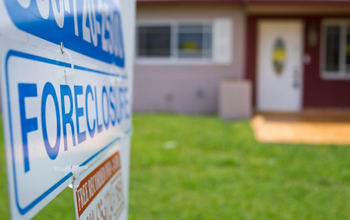
The Golden State joins other jurisdictions in adopting reforms to lower foreclosure rates.
In an effort to decrease the state’s high rate of foreclosures, the California legislature recently passed a “Homeowners Bill of Rights” that includes measures to ban “dual-tracking” and give homeowners the right to sue financial institutions.
California Attorney General Kamala Harris sponsored the legislation, which will lock in some regulatory aspects of the $25 billion national settlement that resolved allegations that the nation’s five largest mortgage servicers engaged in questionable mortgage loan servicing and foreclosure practices. In that settlement, approved in April, the lenders agreed to increased oversight over foreclosure processing under various consent agreements.
The U.S. Secretary of Housing and Urban Development called the California legislation a crucial step toward preventing future foreclosure abuses.
The California legislation requires lenders to act on a borrower’s loan modification application before moving ahead with foreclosure – eliminating a practice known as “dual-tracking” — and to create a single point of contact for borrowers facing foreclosure who are seeking modification of their loans. The legislation imposes penalties when a lender does not sufficiently review mortgage documentation, creates a private right of action for challenging unfair foreclosure proceedings, and eases the prosecution of mortgage-related crimes.
The legislation follows other attempts to change foreclosure regulation in California. In 2009, the state extended the required delay between the notice of default and the notice of sale for a non-judicial foreclosure. Earlier this month, San Francisco city officials proposed a measure to be placed on the November ballot that would force banks to pay a tax when they repossess a property.
The new, state-wide Homeowners Bill of Rights has received mixed but vocal reactions from observers. The Center for Responsible Lending called the private right of action critical and said that such legislation would “provide servicers with strong incentives to comply with the law.”
Meanwhile, the California Chamber of Commerce warned that the legislation would “dry up credit for consumers by forestalling legitimate foreclosure proceedings.” The CEO of the California Bankers Association criticized the legislation and said that “California risks setting itself apart from the rest of the nation to the detriment of future borrowers.”
The general counsel for the Federal Housing Finance Agency, the overseer of Fannie Mae and Freddie Mac, warned that the law would lead to longer foreclosure process delays and increase legal risks for lenders which “ultimately creates harm for all homeowners.”
State Senator Noreen Evans (D), co-chair of the bicameral conference committee that negotiated the bill, said that the law provides much-needed remedies to homeowners but that not overloading the courts was a “sticking point” for passing the legislation.
A recent study by the Center for Responsible Lending indicated that more than 80%of California homeowners receiving loan modifications in 2010 stayed current and avoided re-default while only 2% of the modified loans ended in foreclosure. Last year, the Office of the Comptroller of the Currency published a report determining that delays in the foreclosure process could slow the clearing of excess inventory of foreclosed properties and extend periods of depressed home prices.
California now joins with other states that have passed legislation intended to curb foreclosures and improve mortgage lending practices. According to the National Conference of State Legislatures lawmakers in forty-four jurisdictions introduced foreclosure legislation in 2011, and twenty-eight of these jurisdictions enacted legislation or adopted resolutions during that year.
For example, state senators in Michigan have proposed legislation which would declare insolvency covenants of non-recourse loans unenforceable. A new Nevada borrower-protection law went into effect last October; reportedly foreclosures have nearly stopped in the state but the state’s housing market is still suffering.
New Jersey is considering a bill, first introduced in February, that would allow the state to purchase foreclosed homes and use them to provide affordable housing. The Massachusetts House and Senate each passed b
ills which would require mortgage lenders to consider a number of factors before entering foreclosure proceedings. The bills also would require banks use a formula to show that foreclosing on the house would benefit the bank more than modifying the loan. Massachusetts also passed various changes to state foreclosure law in 2010.
The Oregon Senate passed a bill on May 25 which is currently being considered in the state’s House Rules Committee which would delay foreclosure proceedings until a lender issues a decision on a requested loan modification and which provides homeowners with individual recourse for violations of consumer-protection laws.
State legislatures around the country may make 2012 a year of major foreclosure reform. At the federal level, however, prospects for new legislation remain uncertain. In his 2012 State of the Union Address, President Obama announced a White House plan for legislation that would overhaul federal mortgage lending rules and allow homeowners to reduce costs through refinancing.



